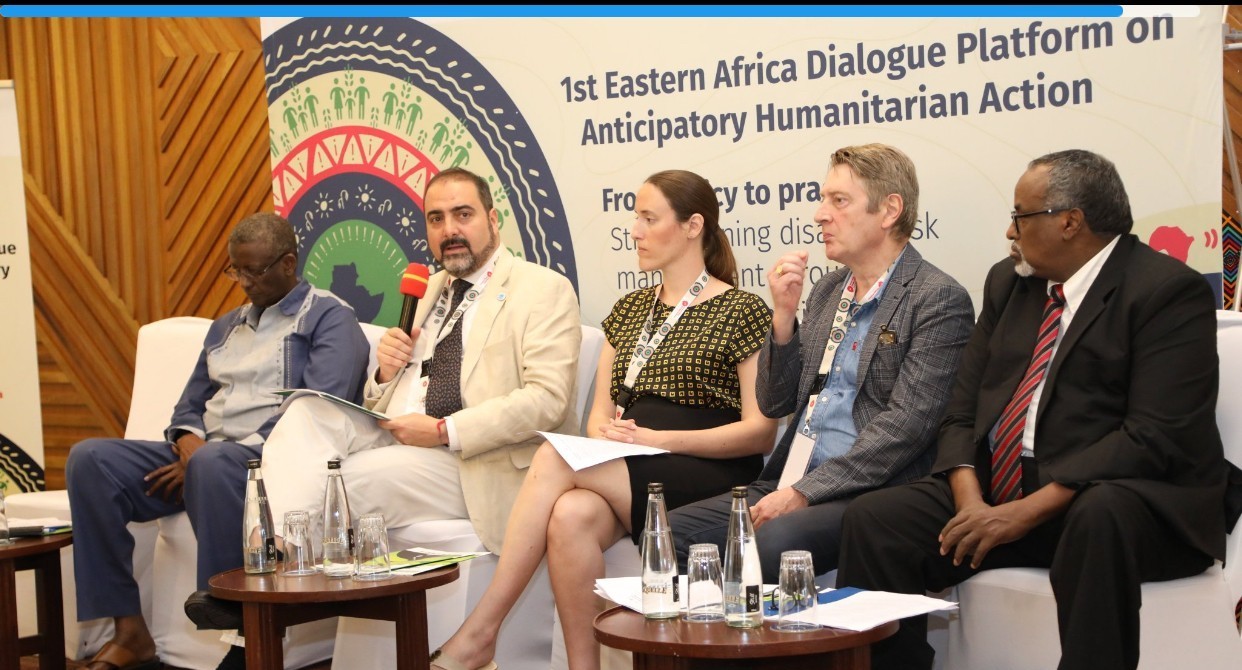Strengthening Anticipatory Action in Eastern Africa: Insights from the 1st Eastern Africa Dialogue Platform (EADP)
/
The 1st Eastern Africa Dialogue Platform (EADP) on Anticipatory Action (AA) convened from October 1st to 3rd, 2024, in Mombasa, Kenya. This inaugural event brought together a diverse group of stakeholders, including government agencies, humanitarian organizations, development actors, and academic institutions. Hosted by the IGAD Climate Prediction and Applications Centre (ICPAC) in collaboration with the International Federation of Red Cross and Red Crescent (IFRC) and the World Food Programme (WFP), the platform aimed to assess the region’s progress in AA, facilitate knowledge sharing, and propose strategies to enhance anticipatory frameworks across Eastern Africa.
The primary goal of the EADP was to evaluate advancements in Anticipatory Action, identify challenges, and propose actionable priorities to integrate AA into existing policy, practice, and financial frameworks. The platform fostered dialogue to align stakeholder efforts and promote collaborative approaches to AA implementation across the region.
A key outcome of the EADP was the establishment of a Declaration outlining commitments to scale up Anticipatory Action in Eastern Africa. This Declaration emphasized the need for cross-sectoral collaboration and the harmonization of AA frameworks to address complex and evolving hazards effectively.
Thematic Focus and Key Discussions
The event was structured around four key thematic areas, each addressing critical aspects of Anticipatory Action:
- Effectiveness of Anticipatory Action in Eastern Africa: Discussions focused on assessing the impact of AA interventions, including early warning dissemination, cash transfers, and non-food item distribution. Participants highlighted the need for better integration of National Hydrological and Meteorological Services (NHMSs) to enhance data accuracy and responsiveness.
- Addressing Complex, Multi-Hazard Risks: Recognizing the interconnected nature of climate risks in Eastern Africa, this theme emphasized the importance of harmonizing methodologies and aligning triggers to address cross-border and multi-hazard scenarios effectively.
- AA Coordination through Roadmaps and Working Groups: Participants explored the development of robust frameworks to ensure coordinated AA implementation. The discussions underscored the importance of government leadership in driving AA agendas and enhancing regional collaboration.
- Financing Anticipatory Action at Scale: This theme highlighted the need for sustainable funding mechanisms and the importance of engaging development actors alongside humanitarian agencies to secure long-term financing for AA initiatives.
PASSAGE Project Contributions
The PASSAGE project played a pivotal role in the EADP, contributing through two focused sessions:
- Strengthening Drought Anticipatory Action: This session emphasized the need to harmonize triggers and thresholds for multi-season and year-long droughts. Discussions highlighted the value of integrating traditional knowledge with scientific data to improve the accuracy and relevance of early warning systems. Advanced technologies, such as drones, were identified as promising tools for enhancing drought monitoring and data validation.
- Addressing Climate Hazards at Scale: Led by Dr. Dominic Kathiya, PI under the PASSAGE project, this session focused on extreme heat risks in cities and drylands. Participants discussed the importance of community-led early warning systems and the need for localized triggers and thresholds to guide anticipatory interventions. The session concluded with a call to raise awareness about the increasing risks posed by extreme heat and the need for coordinated strategies to address these challenges.
Key Takeaways and Recommendations
The 1st Eastern Africa Dialogue Platform generated several critical insights and actionable recommendations to advance Anticipatory Action:
- Integrate Scientific and Traditional Knowledge: Combining indigenous practices with scientific methodologies enhances the accuracy and cultural relevance of early warning systems.
- Harmonize Indicators and Triggers: Establishing region-specific thresholds that reflect local environmental and socio-economic conditions is vital for timely and effective anticipatory interventions.
- Strengthen Government Leadership: Embedding AA within national governance structures and legal frameworks ensures sustainability and institutional ownership.
- Enhance Data Access and Validation: Partnering with private sector actors can address data gaps and improve the availability of real-time, reliable information.
- Sustainable Financing for AA: Developing Disaster Risk Financing (DRF) mechanisms and integrating AA into national budgets is essential for long-term sustainability and effectiveness.
Looking Ahead
The insights from the EADP will inform future Anticipatory Action strategies across Eastern Africa. The PASSAGE project remains committed to fostering collaboration, integrating innovative approaches, and building resilient communities capable of anticipating and mitigating climate risks. Through continued engagement with regional and global partners, the project will work to translate these recommendations into concrete actions that strengthen AA frameworks and support vulnerable populations.
As we move forward, the lessons from the 1st EADP underscore the importance of a multi-sectoral, knowledge-driven approach to Anticipatory Action. By harmonizing triggers, enhancing data systems, and fostering partnerships, we can build a future where communities are better equipped to face the uncertainties of a changing climate.

IGAD Deputy Executive Secretary, H.E. Mohamed Ware (extreme right) with other stakeholder leaders at the EADP meeting in Mombasa.
Categories
Countries
CLARE Pillars
CLARE Themes
CLARE Topics
Published
CLARE Projects
CLARE Partners


